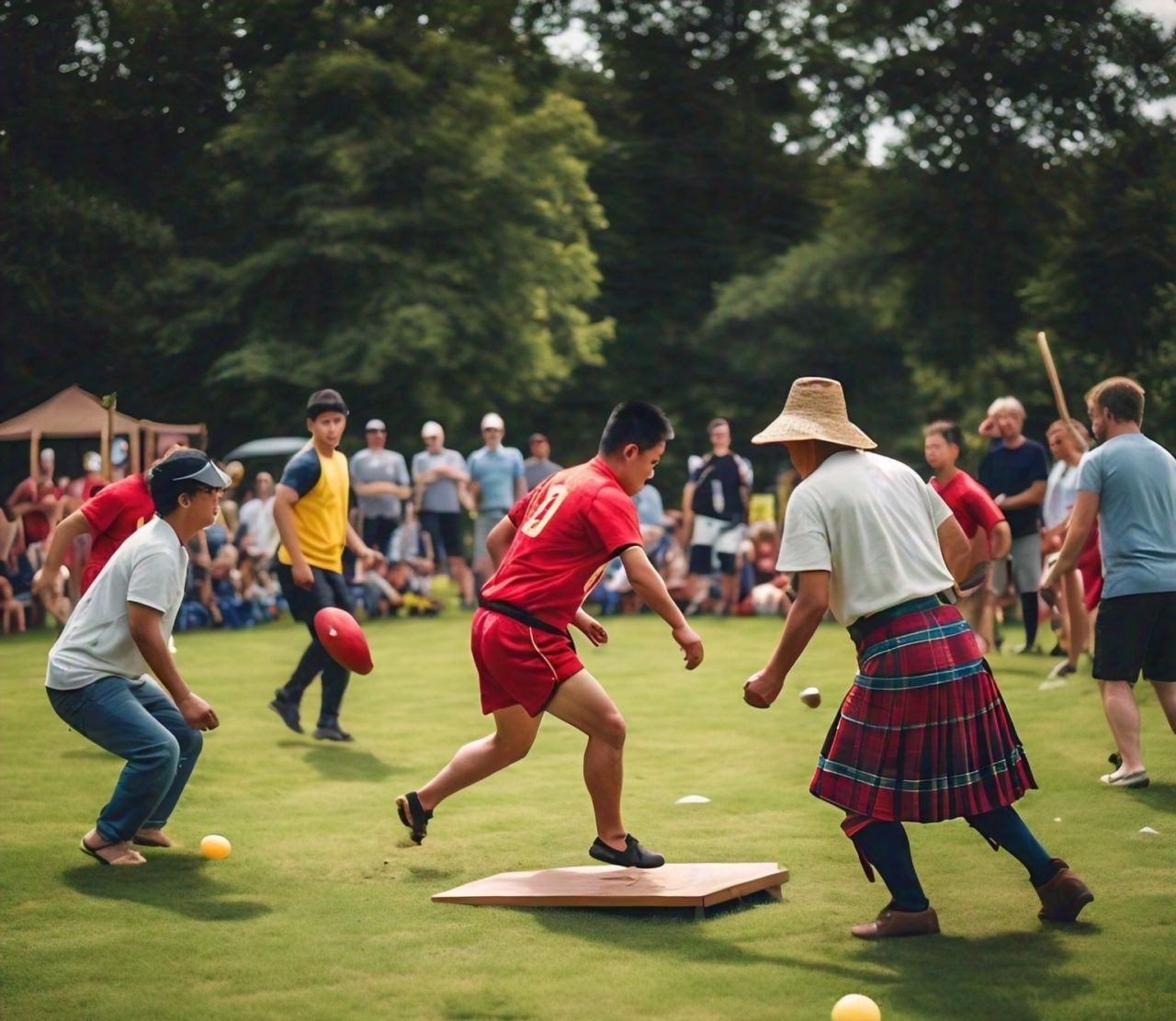Heritage on the Field | Exploring Traditional Sports Across Cultures
Introduction
Traditional sports offer a interesting peek into the cultural heritage and unique practices of various communities around the globe. These time-honored games and activities reflect the history, values as well as social structures of the regions they originate from. Unlike modern sports, which often have global recognition and standardized rules, traditional sports can be deeply rooted in local customs and are celebrated for their cultural significance. This article explores some of the most intriguing traditional sports from different parts of the world, highlighting their origins, rules as well as the cultural impact they hold to this day.
Asian Traditional Sports
Sumo Wrestling – Japan
Sumo wrestling is Japan’s national sport and has a history that spans over 1,500 years. Originating as a form of entertainment for the Shinto deities, sumo has evolved into a professional sport with strict rules and rituals. Two wrestlers known as rikishi, face off in a circular ring called a dohyo. The objective is to force the opponent out of the ring or make any part of their body touch the ground other than the soles of their feet. Sumo matches are brief but intense often lasting only a few seconds. The sport emphasizes not just physical strength but also balance, strategy and mental fortitude.
Kabaddi – India
Kabaddi is a popular contact sport in South Asia, particularly in India, where it has ancient roots. The game involves two teams of seven players each taking turns to send a “raider” into the opposing team’s half. The raider’s goal is to touch as many defenders as possible and return to their side without being tackled. The catch is that the raider must do this in one breath while chanting “kabaddi, kabaddi.” This sport combines elements of wrestling, rugby and tag, focusing on agility, strategy and teamwork. Kabaddi has gained international recognition and is now played in various countries across the world.
European Traditional Sports
Highland Games – Scotland
The Highland Games are a series of traditional Scottish sports and cultural events that date back to the 11th century. These games are held annually in various locations across Scotland and feature a range of athletic and strength-based competitions. Events include the caber toss where participants flip a large wooden log end over end, and the tug-of-war which is a test of team strength. The Highland Games also showcase traditional Scottish music, dance and attire, making it a vibrant celebration of Scottish heritage.
Pelota – Spain
Pelota, also known as Basque pelota is a traditional sport originating from the Basque region in Spain. It is similar to squash or jai alai and involves hitting a ball against a wall using one’s hand, a bat, or a basket, depending on the variation. The game can be played in singles or doubles and is known for its fast pace and high skill level. Pelota courts, known as frontons are common in Basque towns and cities, serving as social hubs where locals gather to watch and play the game. Pelota is deeply inserted in Basque culture and continues to be a popular sport in the region.
African Traditional Sports
Dambe – Nigeria
Dambe is a traditional form of boxing practiced by the Hausa people of Nigeria. This combat sport has historical roots in military training and ritualistic ceremonies. Dambe bouts involve two opponents who use one hand for striking and the other for defense. The striking hand is often wrapped in cloth and rope and forming a makeshift glove. Matches are typically held during festivals and attract large crowds. Dambe is not just a sport but also a cultural expression which integrating the warrior spirit and resilience of the Hausa people.
Nguni Stick Fighting – South Africa
Nguni stick fighting, known as donga or dlala ‘nduku, is a traditional martial art of the Nguni people in South Africa. Young men engage in stick fights to demonstrate their bravery, skill and physical strengths. Each fighter wields two sticks from which one for attack and the other for defense. The objective is to strike the opponent while avoiding being hit. Nguni stick fighting is often performed during ceremonies and rites of passage such as weddings and initiations. It is a respected practice that supports community bonds and cultural identity.
American Traditional Sports
Lacrosse – Native American Tribes
Lacrosse is a traditional sport invented by Native American tribes, particularly the Iroquois Confederacy. Known as the “Creator’s Game”. Lacrosse holds spiritual significance and was historically played to resolve conflicts, heal the sick and prepare warriors for battle. The game involves two teams using long-handled sticks with a netted pouch to catch, carry and pass a small ball with the objective of scoring goals. Modern lacrosse has evolved significantly but retains its cultural importance among domestic communities who continue to play and celebrate the sport.
Ulama – Mexico
Ulama is an ancient Mesoamerican ballgame that dates back over 3,000 years, played by the Aztecs and Maya civilizations. The game involves two teams hitting a rubber ball with their hips and aiming to keep it in play and score points by passing it through a hoop or hitting specific markers. Ulama is physically demanding and requires great skill and coordination. Although the game nearly ended after the Spanish conquest however efforts to generate again Ulama have been successful and it is now played in certain regions of Mexico as a way to preserve and honor domestic heritage.
Oceanian Traditional Sports
Haka – New Zealand
Haka is not a sport in the traditional sense but a ceremonial dance performed by the Maori people of New Zealand. It involves rhythmic movements, chants and facial expressions to convey strength, unity as well as audacity . Traditionally, Haka was performed before battles to intimidate opponents but it is now used in various contexts including sports. The New Zealand rugby team, the All Blacks, famously performs a Haka before each match and showcasing this powerful cultural practice on a global stage.
Surfing – Hawaii
Surfing, originated in Hawaii centuries ago. Ancient Hawaiians called it “he’e nalu,” meaning wave sliding and it was a central part of their culture which tied to religious practices and social status. Chiefs and royalty often had exclusive access to the best surf spots. Surfing involves riding ocean waves on a board, requiring balance, strength and a deep understanding of the ocean. Today, surfing is both a recreational activity and a competitive sport with Hawaii remaining a revered destination for surfers worldwide.
Conclusion
Traditional sports are more than just physical contests as they are rich varieties of cultural expression and communal identity. Each sport offers insights into the values, history and social dynamics of the society from which it originates. Whether it’s the disciplined rituals of sumo wrestling in Japan, the communal spirit of the Highland Games in Scotland or the historical significance of lacrosse among Native American tribes all these traditional sports continue to forge connections between people and their heritage. Preserving and promoting these traditional sports ensures that future generations can appreciate and celebrate the diverse cultural landscapes of our world.























